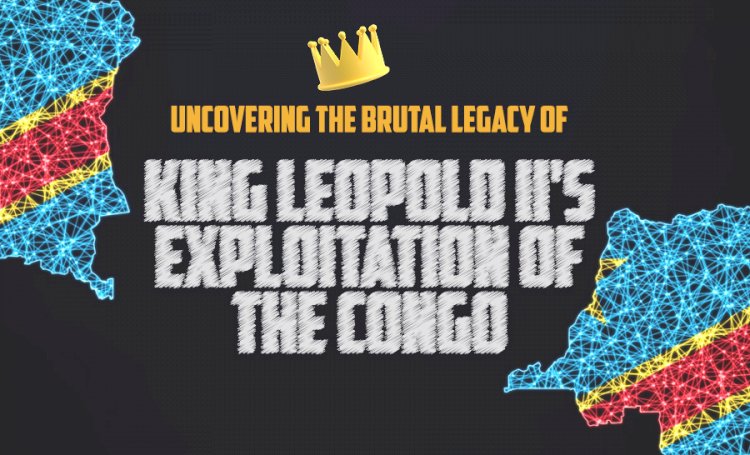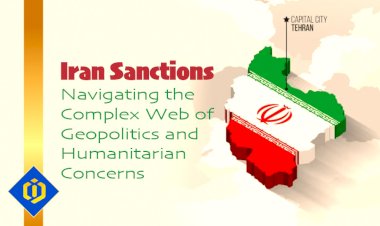The Remaining Social and Human Rights Impacts of King Leopold II's Exploitation of the Congo

The brutal colonization and exploitation of the Congo by Belgium's King Leopold II had far-reaching and disastrous effects on the Congolese people. Widespread human rights violations and fatalities were caused by the atrocities carried out during his rule, including forced labor, slavery, and extreme violence. According to historians, the violence and exploitation that were inflicted upon the Congolese caused between 10 and 15 million deaths. Leopold II's reign is remembered for its use of violence, greed, and exploitation.
The nation and its people were affected negatively by the exploitation of the Congo. The Congolese economy was destroyed, and the nation was left in an undeveloped and impoverished state that has persisted ever since. The Congolese people, who have fought to recover from the trauma of colonialism, were also traumatized by the brutality and violence of Leopold II's rule.
Leopold II has been largely celebrated in Belgium as a national hero, with statues and monuments built in his honor, despite the atrocities carried out under his rule. This is evidence of colonialism's enduring legacy and how it still affects the way the world is today. It is crucial to recognize and denounce the deeds of individuals like Leopold II and to strive for a more just and equitable future for all people.
The colonization of the Congo had a long-lasting effect on the region, but it also had a significant impact on the world economy because the colony's wealth fueled the expansion and advancement of Europe and North America. The growth of the automobile industry and other sectors that needed rubber for production was greatly aided by the rubber trade in particular. The profits made from the exploitation of the Congo were used to support the development and growth of the economies of Europe and America, but at the expense of the Congolese people and their human rights.
The Congo and its people are still being shaped by colonialism and exploitation today. With significant poverty and inequality, the nation continues to be among the world's poorest. The ongoing violence and conflict in the country's east, the prevalence of child labor and other forms of exploitation, and these are just a few of the difficulties that the Congolese people still have to deal with.
It takes a dedication to social justice and human rights as well as a readiness to draw lessons from the past to create a more just and equitable world. We can start to address the main causes of poverty and inequality, advance social justice and human rights, and make sure that such atrocities are not repeated in the future by acknowledging the atrocities committed under King Leopold II's rule and working toward a more just and equitable future for the Congo and its people.
In the end, King Leopold II's influence over the Congo serves as a stark reminder of the terrible effects of colonialism and exploitation on social justice and human rights. We can create a more just, more equitable, and more humane world by acknowledging and denouncing the atrocities carried out while he was in power and by working to ensure the future of the Congo and its people is just and equitable.
There are numerous other instances of power in the modern world violating human rights and promoting exploitation, frequently with double standards and hypocrisy, in addition to the legacy of King Leopold II's brutal colonization and exploitation of the Congo.
Child labor, forced labor, and other forms of exploitation are still commonplace in many industrialized nations and large corporations. Even though these actions are prohibited and violate fundamental human rights, they continue to be practiced, frequently with the tacit endorsement or support of those in positions of authority.
When it comes to the use of natural resources, this double standard is particularly obvious. The ability to extract resources from third-world nations without providing just compensation or upholding the rights and dignity of the local populace is frequently a function of powerful nations and influential corporations. As a result, the wealthy few become more powerful at the expense of the many, which furthers poverty and inequality in the developing world.
Recognizing and denouncing such behaviors is crucial, as is working to create a world that is more just and equitable and allows everyone to live with respect and dignity. To achieve this, it's important to promote social justice and human rights, hold those in positions of authority accountable for their deeds, and make sure that everyone's rights and dignity are upheld.
Finally, the lingering effects of King Leopold II's brutal colonization and exploitation of the Congo serve as a sobering reminder of the terrible toll that colonialism and exploitation have taken on social justice and human rights. It also draws attention to the need for increased transparency and accountability in how power is used in the modern world. We can begin to address the underlying causes of poverty and inequality, advance social justice and human rights, and create a better future for all people by working toward a more just and equitable world where everyone is able to live with dignity and respect.
Author: Pooyan Ghamari
------------
As an expert in social justice and human rights, Pooyan Ghamari is committed to promoting a more just and equitable world, and to addressing the legacy of colonialism and exploitation in the Congo. He believes that it is important to work towards a future where all people are able to live with dignity, respect, and equality, and where human rights are protected and promoted.

 content-team
content-team 


















